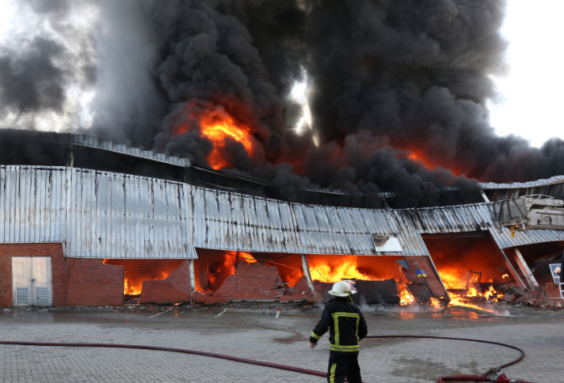 In Frankenmuth Mut. Ins. Co. v. Fun F/X II, Inc., the U.S. Court of Appeals for the Seventh Circuit considered whether loss from a warehouse fire was excluded from coverage because of the insureds’ failure to notify the insurer of a known impairment to the building’s fire protection systems prior to the fire.
In Frankenmuth Mut. Ins. Co. v. Fun F/X II, Inc., the U.S. Court of Appeals for the Seventh Circuit considered whether loss from a warehouse fire was excluded from coverage because of the insureds’ failure to notify the insurer of a known impairment to the building’s fire protection systems prior to the fire.
The defendants were owners of a costume and theatrical supply retailer that stored inventory in a warehouse insured by the plaintiff, Frankenmuth Mutual Insurance Company. In or around 2004, the defendants had replaced the sprinkler heads in the warehouse and hired inspection companies for routine testing. In 2017, an inspector found the sprinkler system had no water pressure, but neither the inspector nor the insureds could determine the source of the problem. The defendants took several follow-up actions to address the issue, including contacting the municipal water authority, but never received any indication that the issue was or would be fixed. In 2018, another inspection was performed, and the defendants were not informed of any problems. A fire then destroyed the warehouse in 2019, and the defendants claimed losses in excess of $7 million. It was later determined that the city erroneously cut and capped the pipe supplying the warehouse’s water in 2017 while demolishing a neighboring building.
Frankenmuth subsequently filed a declaratory judgment action in Indiana federal court, seeking a declaration that coverage for the fire was barred by the policy’s “notice-of-impairment” exclusion. The exclusion precluded coverage for loss or damage from fire where, prior to the fire, the insured “knew of any suspension or impairment in any protective safeguard … and failed to notify [Frankenmuth] of that fact.” The Northern District of Indiana found the undisputed facts established that the sprinkler system was impaired, the insureds knew about the impairment, and that they failed to notify Frankenmuth prior to the fire, thus triggering the exclusion.
The insureds appealed the ruling to the Seventh Circuit, which affirmed, finding the exclusion to be unambiguous and plainly applicable. In so holding, the court rejected the argument that the exclusion was inapplicable because the impairment occurred away from warehouse. The court ruled such a distinction “would hinder rather than promote the notice exclusion’s obvious purpose.” The court also rejected the insureds’ argument that their lack of knowledge of the source of the impairment at the time of the fire precluded application of the exclusion, noting that the insureds did know of the impairment “prior to the fire,” as is necessary for the exclusion to apply.
